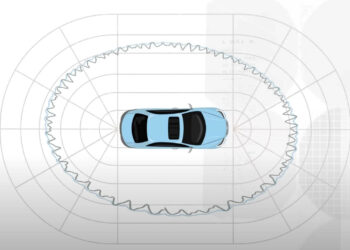
- Image by Getty Images via Daylife
Privacy is a hot concept these days, with social networks, smartphones, camera phones, Google street view cars, and all sorts of connectedness threatening to expose us, or sensitive information about us.
But how people are defining privacy doesn’t always make sense.
I read a jarring anecdote recently in which someone felt an expectation of privacy because they’d called in sick to work in order to go to a baseball game with a friend, and another friend saw them there and Twittered about it. The person’s boss found out, and trouble ensued. The truant alleged his privacy had been violated.
I think he was just searching to shift the blame. In reality, there’s only one word for what happened — “Busted!”
In the UK, a Google street view car was stopped from going into a town. The residents had concerns that the photos would invade their privacy. While taking photos of houses from the street or sidewalk is legal, the unfettered distribution of these photos is probably what started making people nervous.
As Clay Shirky said recently referring to the filtering economy of the prior era: “The inefficiency of information flow wasn’t a bug, it was a feature. That’s what privacy was.”
In the 1960s, Howard Gossage wrote an extended complaint about how billboards violated our privacy:
A billboard has no other function, it is there for the sole and express purpose of trespassing on your field of vision. Nor is it possible for you to escape; the billboard inflicts itself unbidden upon all but the blind or recluse. Is this not an invasion of privacy?
Most privacy experts believe privacy is about expectations, which resolve from a blend of personal expectations and social expectations. You expect a public washroom to be private, but if you put your garbage to the curb, it’s no longer private. The courts have to sort these things out regularly.
In the digital space, how privacy is handled is another synthesis of inputs, and things haven’t been resolved yet. Providers like Facebook try to give users a lot of control over what is shared, but users also have to avoid putting stupid pictures of themselves up and the like.
But is a baseball stadium private? I think not. Did the person who Twittered about seeing a friend there violate privacy? No, clearly not. Is a Google street view car violating your privacy? Unlikely. Do billboards violate privacy? No, but they are obnoxious, which is a separate issue.
What is privacy online? Behavioral targeting makes users uncomfortable. Is that a privacy issue?
Are we expanding the definition of “privacy” as a way of expressing free-floating unease about the digital lifestyle in general? The ability for everyone to be a contributor? The ability to have our breadcrumbs assessed, even anonymously?
As the Center for Democracy and Technology puts it, privacy online comes from a combination of legal, technical, and self-regulatory forces. They have a great set of information on the topic.
Leave it to Shirky to sum it all up:
Managing your privacy practices is an unnatural act. . . . Privacy is a way of managing information flow. . . . The big question we’re facing around privacy now is that we’re not moving from one engineered system to another engineered system with different characteristics. We’re moving from an evolved system to an engineered system.
Discussion
1 Thought on "Going Public About Privacy"
What’s interesting to me is how willing people are to release their privacy, whether knowingly or unknowingly. This article was a bit of an eye-opener for me, when the author watched someone take a picture with their iPhone, found the photo on Flickr via the geotag and timestamp, found the users other photos and from there was able to figure out where they lived and what sorts of things they had in their apartment:
http://www.wired.com/gadgets/wireless/magazine/17-02/lp_guineapig
There’s a fine line between having “followers” and having stalkers. While I’m fairly open and all over the web in my professional life, I try to keep most of my private life as private as possible (which is probably a sign that I’m too old to “get it”).
I’m expecting to see something of a backlash against the rampant exhibitionism currently seen online when more real-world incidents occur.
![Reblog this post [with Zemanta]](http://img.zemanta.com/reblog_e.png?x-id=a30b0823-3247-4918-877b-b60c422c2403)


